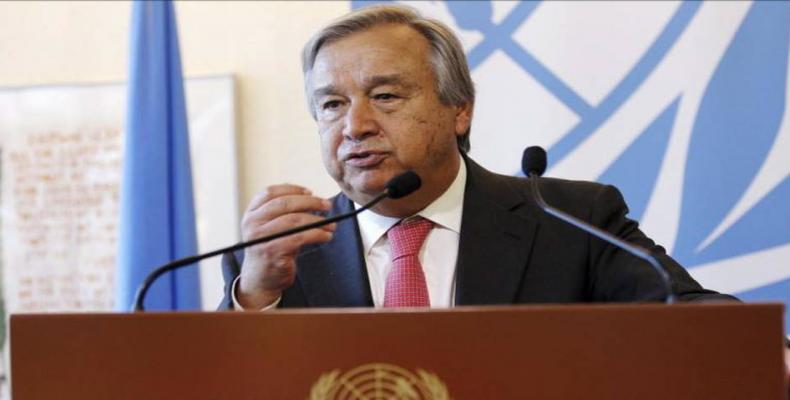United Nations, October 6 (RHC) -- Former Portuguese Prime Minister Antonio Guterres is slated to succeed Ban Ki-moon as the next secretary general of the United Nations, following an expected formal recommendation by the Security Council to the General Assembly later this week.
The Security Council will adopt a resolution -- behind closed doors, as traditional -- recommending that the General Assembly appoint Guterres for a five-year term from January 1, 2017. The resolution requires nine votes in favor and no vetoes in order to pass.
Guterres will replace South Korea's Ban Ki-moon, who will step down at the end of 2016 after serving two terms. Former prime minister of Portugal from 1995 to 2002, Guterres began his political career in 1974, when he joined Portugal's Socialist Party just before the April 25 Carnation Revolution, when the Portuguese left overthrew Marcelo Caetano's dictatorship.
Wednesday's announcement was made by the president of the Security Council, Russian U.N. Ambassador Vitaly Churkin. The 66-year-old diplomat was elected from a total of 13 candidates who had to submit detailed proposals for their work in appearances before the General Assembly last month to outline their plans.
He will assume his new position amid a global refugee crisis and growing concerns -- and sometimes xenophobic responses -- to migration, a matter he tackled for 10 years when he served as United Nations High Commissioner for Refugees from June 2005 to December 2015.
Former Portuguese Prime Minister Set to be Next UN Secretary General

Related Articles
Commentaries
MAKE A COMMENT
All fields requiredMore Views
- New York doctor fired for rejecting Zionist propaganda, defending resistance
- Artistic swimmers prepare for continental competition
- Russian minister says BRICS to establish digital payment system for members
- President Nicolas Maduro rejects Marco Rubio's threats against Venezuela
- Ibero-American Criminal Sciences event comes to a close in Cuba

